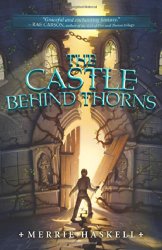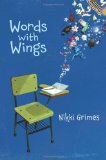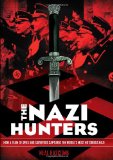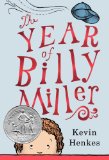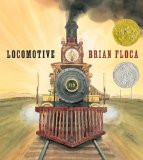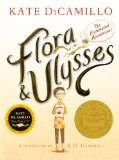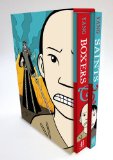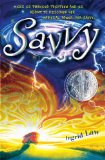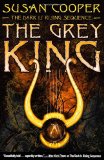Review of The Castle Behind Thorns, by Merrie Haskell
by Merrie Haskell
Katherine Tegen Books (HarperCollins), 2014. 327 pages.
Starred Review
2014 Cybils Finalist, Speculative Fiction for Elementary & Middle Grades
2014 Sonderbooks Stand-out, #2 Children’s Fiction
I loved this book. It begins with Sand (Alexandre) waking up in a fireplace. He has no memory of how he got there, or even of falling asleep.
In the room beyond, everything was broken.
Every single thing.
The mantel lay in two disjointed pieces on the cracked hearth. Mixed with the mantel’s splinters lay the shattered crest of a great family, their gilded phoenix and silvered swan once entwined, now separated and dismembered.
The enormous wooden tables throughout the room sagged and slumped like beasts fallen to the hunt. Every bench around the tables lay sideways and in pieces. Each cup and bowl was shattered or smashed. All the tablecloths and tapestries puddled in scraps on the floor or hung in tatters, and even the wood and kindling for the fireplace had been reduced to slivers….
Now he knew where he had awakened.
He was inside the Sundered Castle.
Every morning of his life, Sand had stepped out the front door of his house and ignored this broken castle across the valley. Everyone in the village ignored it. It was unreachable. Only the castle’s towers were visible above an enveloping thorny hedge, a raspberry bramble of astonishing proportion that had grown up around the ruin after the abandonment. Of course, no one picked raspberries from the hedge.
Sand explores the castle. Everything in it is broken. Even loaves of bread, books, and items of clothing are ripped in half.
Nothing was whole here, nothing at all. Not a spoon, not a toothpick, not a bed, not a door. No room had been exempted from the destructive force that had overtaken the castle.
Nothing in the castle has rotted, though, and it is oddly free of any signs of life – no animals, birds, or even mold.
Sand goes looking for the treasury, but instead finds the crypt, and a broken tomb.
The body that had once dwelled inside the fragmented tomb must have been ejected by the same force that had rent earth and stone throughout the castle. Scraps of a shroud littered the floor. It was strange, like some great outside force had tried to free the body. But to what end? To just let it lie in a heap on a dirt floor?
The body hunched in a haphazard pile of withered skin. Like one of the apples in the kitchen, Sand thought disjointedly, altogether horrified. His candlelight should have been steady in the still air below the earth, but it trembled with his shaking hand. Even the quivering light showed the details too well.
The corpse had been a girl. Her clothes were, perhaps, the only thing in the entire castle that were not ripped or town; they were fine fabrics, deep saffron velvets and russet silks that had not faded with age.
And the corpse was whole as well, though clearly the body’s bones were broken beneath its powdery, dried-out skin. The neck was tilted at an odd angle, and the arms and legs were bent horribly akimbo….
He shouldn’t leave her like that. He should put something to rights in this broken place, and she deserved it; she had been a person once. . . .
With his duty done, he fled up the stairs into the sunlight. He was ready to leave. He’d seen enough, maybe too much, and he wanted nothing more from this place. Its treasures could stay hidden. Its secrets could remain undiscovered. He had to get out. This place hadn’t suffered from some earthquake. Something else had happened here. Something that cut leather, ripped apples in half, and tore apart cast iron kettles. Something that broke bread and tossed bodies from tombs.
Naturally, Sand tries to get out. But the thorny hedge has a life of its own, and one thorn prick gives him a fever.
All that happens in just the first chapter.
As the book goes on, Sand figures out how to live in the castle. The old food can be salvaged, and he finds a way to get water from the well, even though the bucket is broken. He finds a stuffed falcon with a broken leg, splints the leg and begins carrying the falcon with him, to have a face to talk to.
In the smithy, even the anvil is in two pieces. But Sand is a smith by calling, having learned from his grandfather, and half an anvil is better than no anvil at all. He begins systematically mending things.
But his mending works better than it should. His unskilled efforts perfectly restore things. And then the falcon comes back to life. Readers will not be surprised at what else does.
But there’s still the problem of the curse on the castle. And the thorns have them trapped inside. I like the interaction as the two children slowly figure out how to break the curse. And figure out how to deal with the outside world if they do get out.
It’s also refreshing to have a boy in a book whose father wants to send him to the University – but he wants to be a blacksmith. I’ve heard the opposite story often. Sand is smart enough to go to the University, but his heart is in the craft of blacksmithing.
The author also beautifully works in a message about forgiveness. She’s not preachy, and it’s seamlessly and naturally built into the story, but I loved that part. I also loved that she didn’t present the idea that forgiveness can be achieved in an instant, but that just beginning to forgive has a magic of its own.
This is a fairy-tale-like story, but with nothing so simple as “true love’s kiss” to break the spell. The two main characters are middle-school-aged kids, and they go about the business of surviving and breaking the spell with kid-sized determination. They start out with some bickering, but learn to get along, bridge their differences, and become friends. This story completely charmed me.
merriehaskell.com
harpercollinschildrens.com
Find this review on Sonderbooks at: www.sonderbooks.com/Childrens_Fiction/castle_behind_thorns.html
Disclosure: I am an Amazon Affiliate, and will earn a small percentage if you order a book on Amazon after clicking through from my site.
Source: This review is based on a library book from Fairfax County Public Library.
Disclaimer: I am a professional librarian, but I maintain my website and blogs on my own time. The views expressed are solely my own, and in no way represent the official views of my employer or of any committee or group of which I am part.
Please use the comments if you’ve read the book and want to discuss spoilers!
